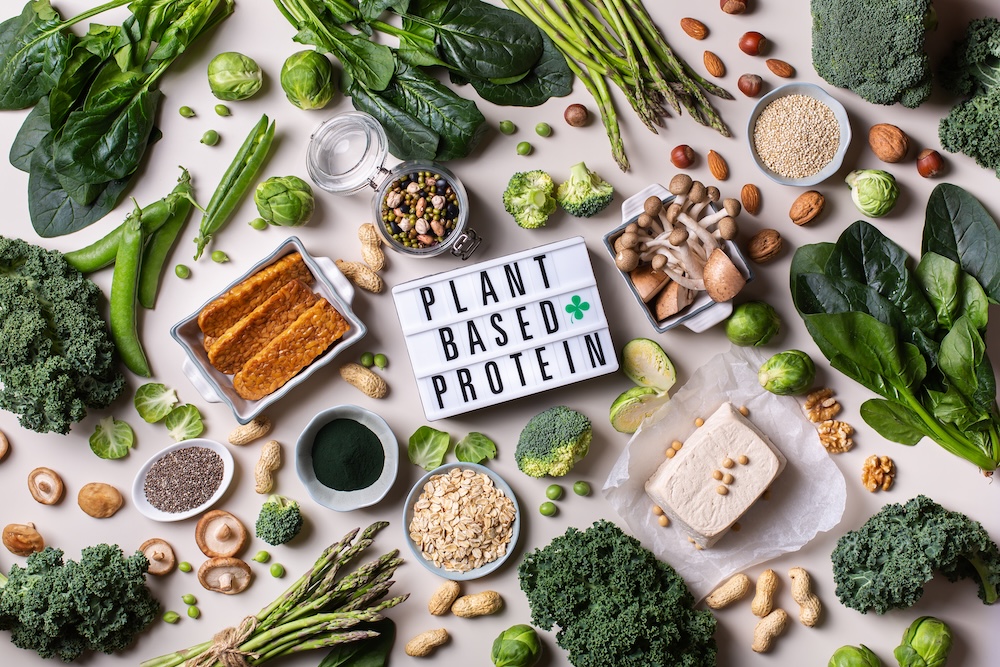Athletes are constantly searching for effective ways to fuel their workouts, and one method gaining traction is a plant-based diet. A plant-based diet emphasizes whole, minimally processed foods from plants — fruits, vegetables, grains, legumes, nuts, and seeds.
While the health benefits are well established, plant-based eating also raises a critical question: does plant-based always mean sustainable? The answer is no. A diet built on out-of-season produce flown across the world or heavily packaged processed substitutes can still carry a high environmental footprint. For athletes, the challenge — and opportunity — is to align personal performance with responsible, sustainable choices.
Nutritional Benefits for Athletes
Protein sufficiency
- A balanced plant-based diet can supply adequate protein for training and recovery.
- Lentils, chickpeas, black beans, tofu, and tempeh are strong sources.
- Variety is key: combining different plant proteins ensures essential amino acids.
Micronutrients & antioxidants
- Fruits and vegetables are abundant in vitamin C and phytonutrients that support immune function and tissue repair.
- Nuts and seeds provide omega-3s and healthy fats critical for brain and joint health.
Lower saturated fats
- Plant-based diets typically limit saturated fat and cholesterol, which supports cardiovascular endurance and overall longevity in sport.
Performance & Recovery Advantages
Endurance support
- Research in the Journal of the International Society of Sports Nutrition shows improved endurance among athletes on plant-based diets, largely due to higher complex carbohydrate intake.
Reduced inflammation
- Polyphenols in fruits, vegetables, and grains reduce inflammation, supporting quicker recovery and protecting against chronic joint stress.
Faster recovery times
- A Journal of the American College of Nutrition study found lower markers of muscle damage in plant-based athletes after intense training compared with those on Western diets.
The Sustainability Caveat
A plant-based diet is not automatically sustainable.
- Industrial monocrops (soy, almonds, palm oil) can lead to deforestation, high water use, and biodiversity loss.
- Processed vegan foods (fake meats, packaged snacks) may involve long supply chains and single-use plastics.
- Imported foods (e.g., avocados, quinoa out of season) can carry a significant carbon footprint.
👉 True sustainability in plant-based eating requires attention to how and where foods are grown, whether they support fair labor, and how much packaging or processing is involved. Choosing local, seasonal produce, reducing food waste, and reusing packaging are ways athletes can align dietary choices with environmental responsibility.
Real-Life Plant-Based Athletes
- Kendrick Farris — Olympic weightlifter, American record holder.
- Venus Williams — transitioned to a plant-based diet to manage Sjögren’s syndrome, winning multiple titles afterward.
- Scott Jurek — ultramarathoner who set the Appalachian Trail speed record while vegan.
These athletes demonstrate performance potential — but their choices also highlight that health and sustainability are separate considerations.
Practical Tips for Transitioning Athletes
- Start gradually: Add plant-based meals instead of switching overnight.
- Prioritize whole foods: Base meals on vegetables, legumes, and grains rather than processed replacements.
- Mind protein sources: Rotate lentils, tempeh, nuts, and seeds.
- Supplement smartly: Vitamin B12, iron, and sometimes vitamin D or omega-3 algae supplements may be needed.
- Choose sustainably: Favor local and seasonal produce, compostable packaging, and fair-trade products where possible.
Final Thoughts
Plant-based diets can improve endurance, reduce inflammation, and support faster recovery — making them a powerful tool for athletes. But sustainability is not guaranteed just because food is plant-based. By focusing on nutritional balance, sourcing responsibly, and reducing waste, athletes can fuel performance while also reducing their environmental footprint.
Small shifts in how we eat — from what we choose to how it’s grown and packaged — create ripples that support both human performance and planetary well-being.








